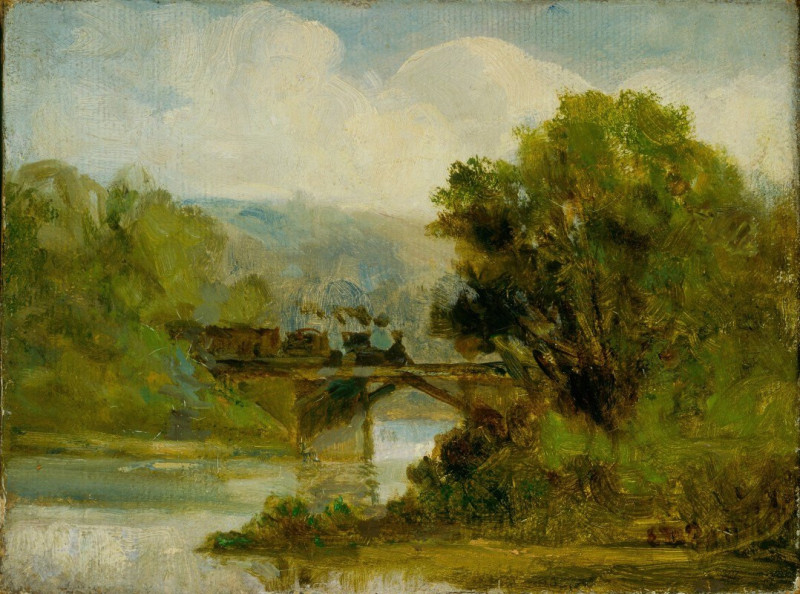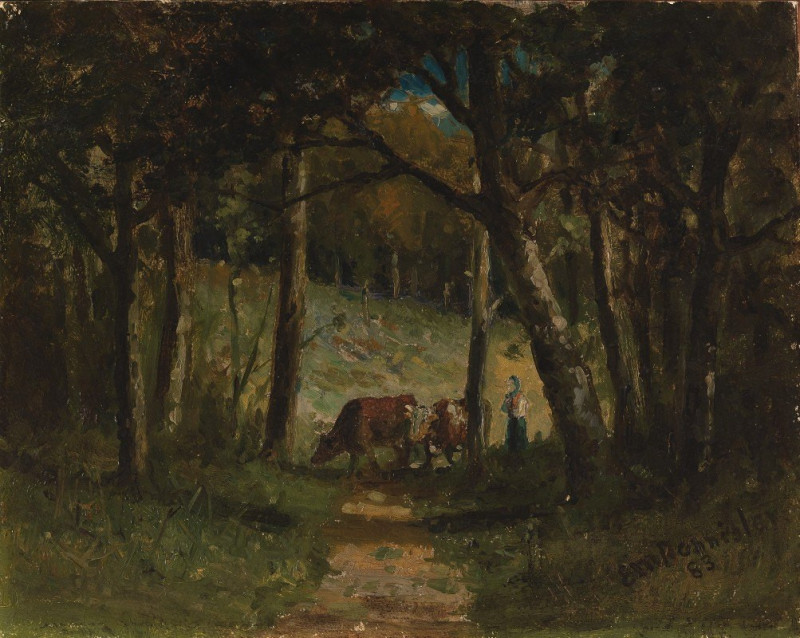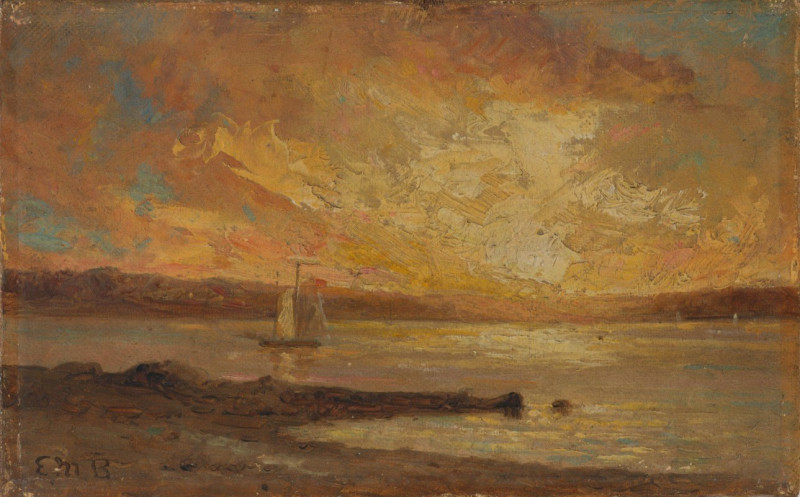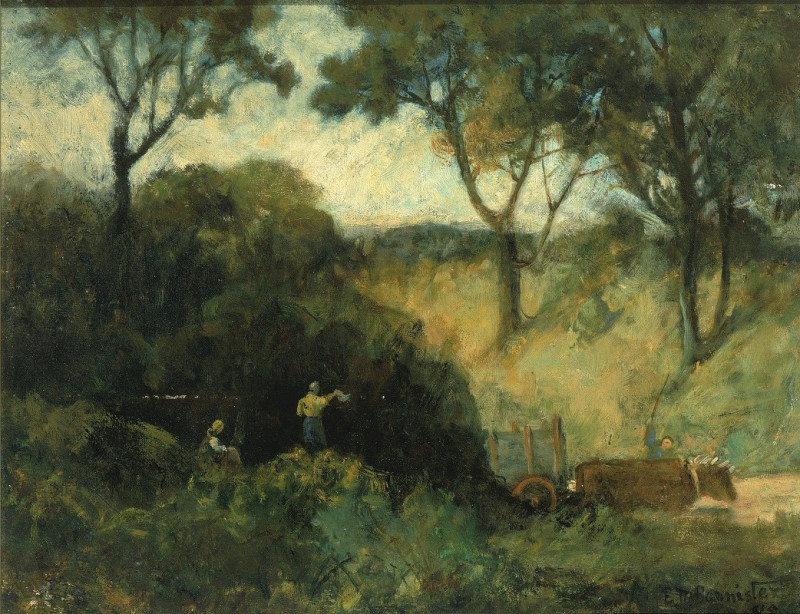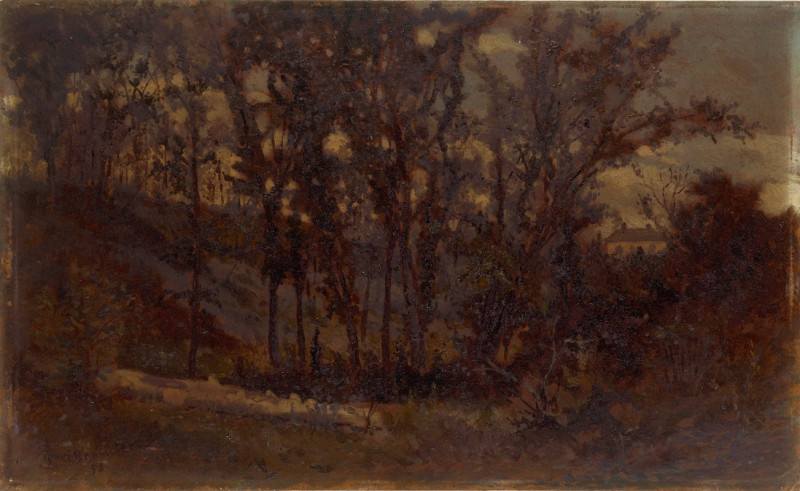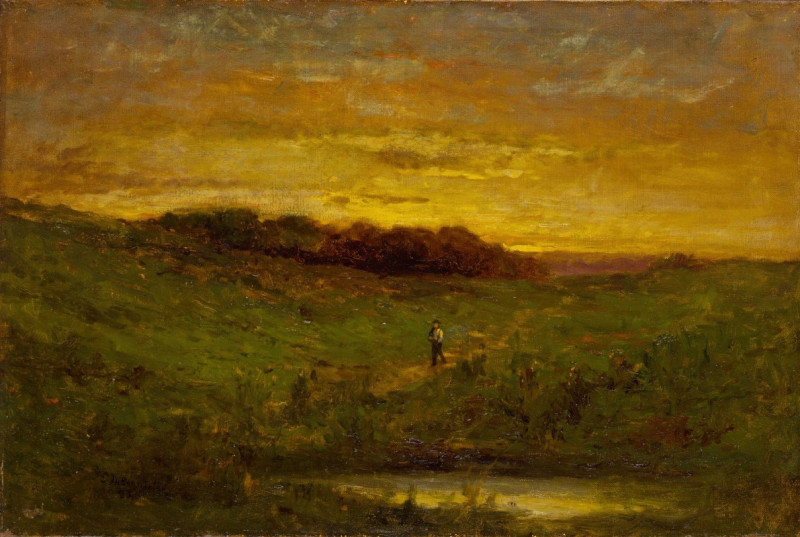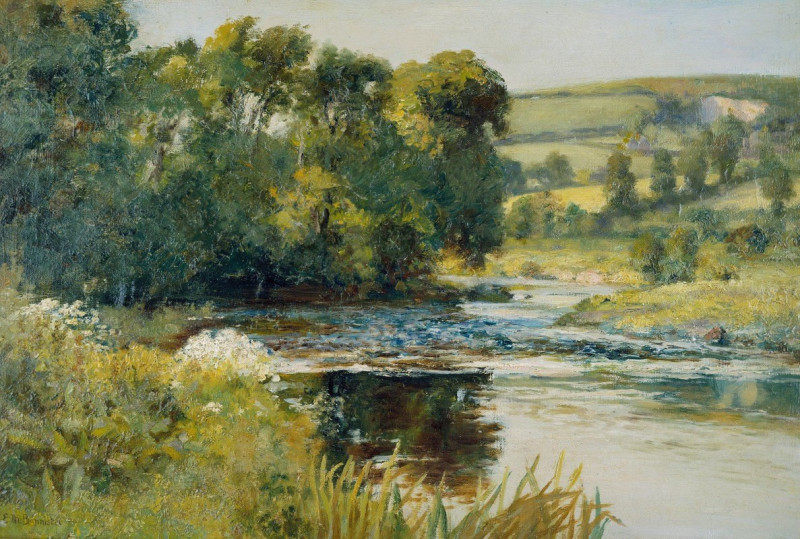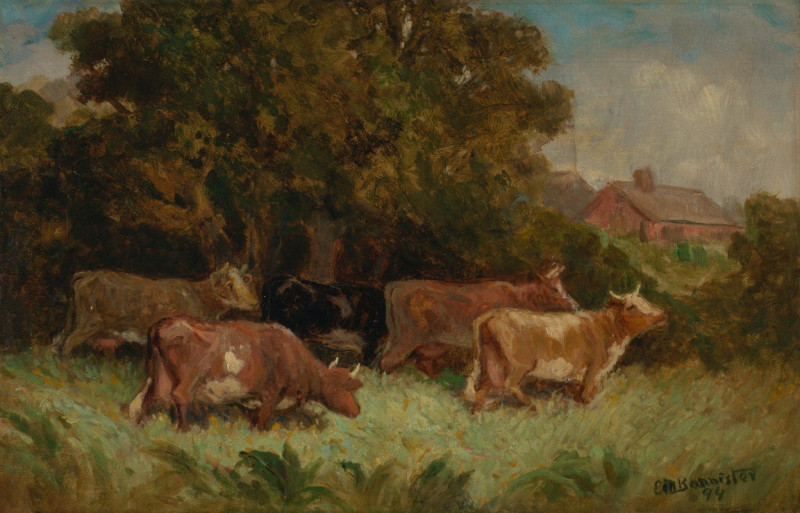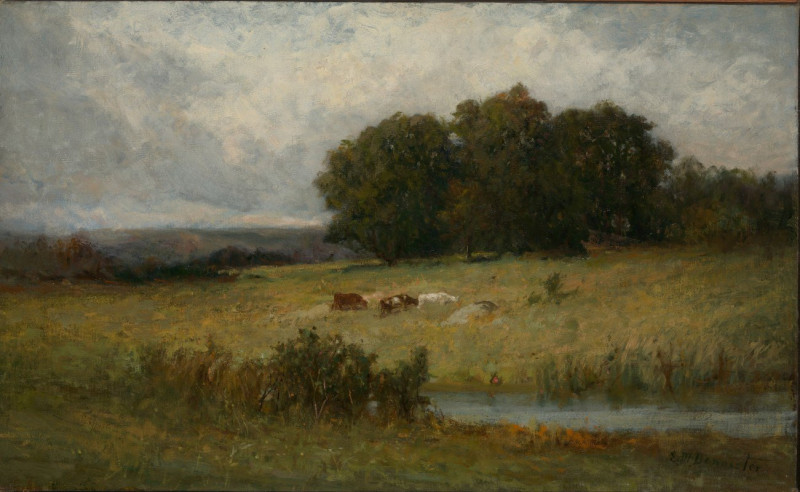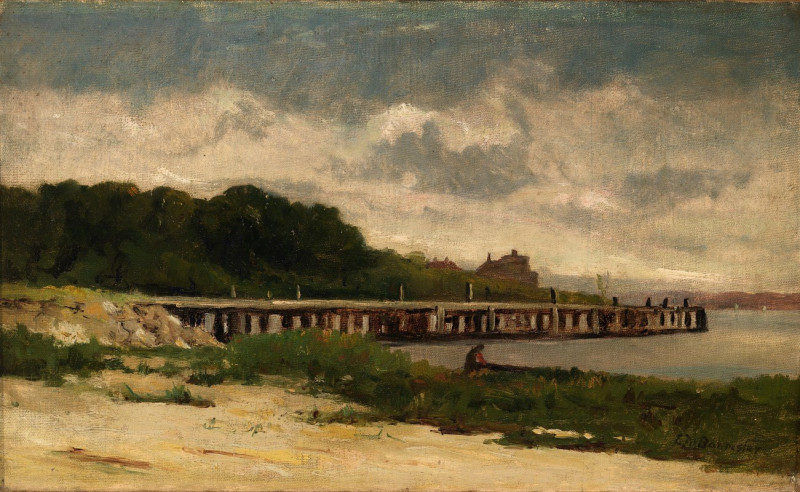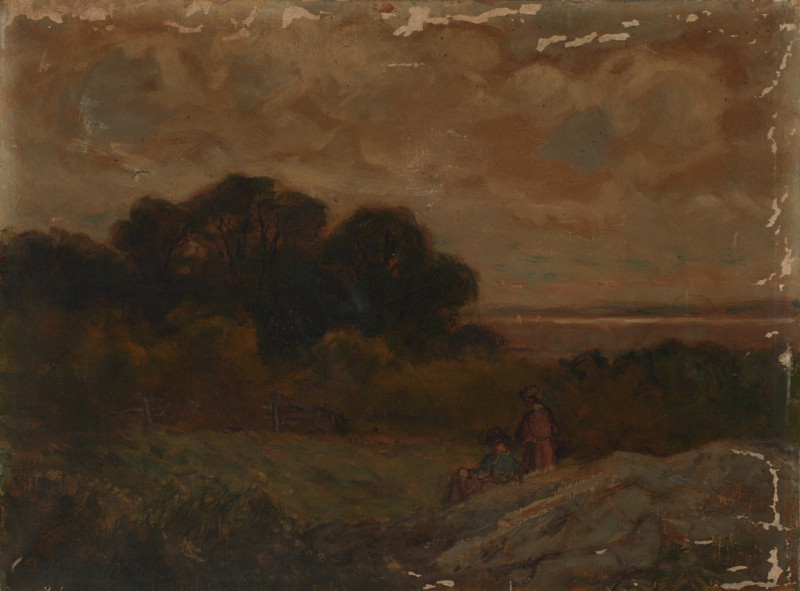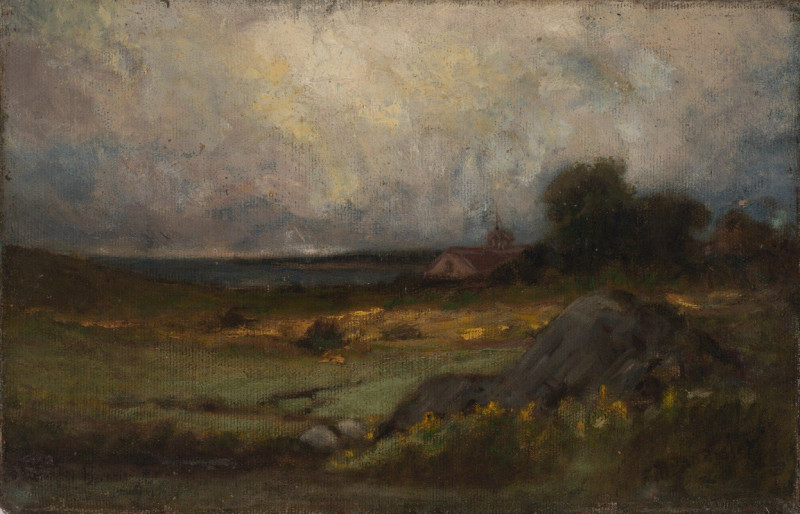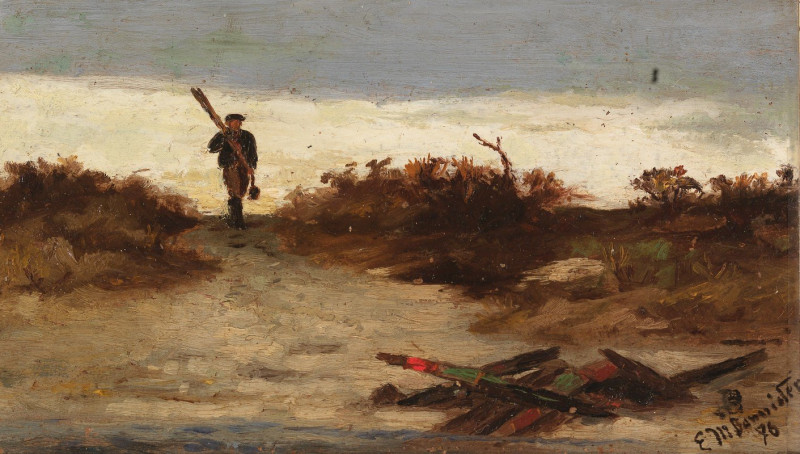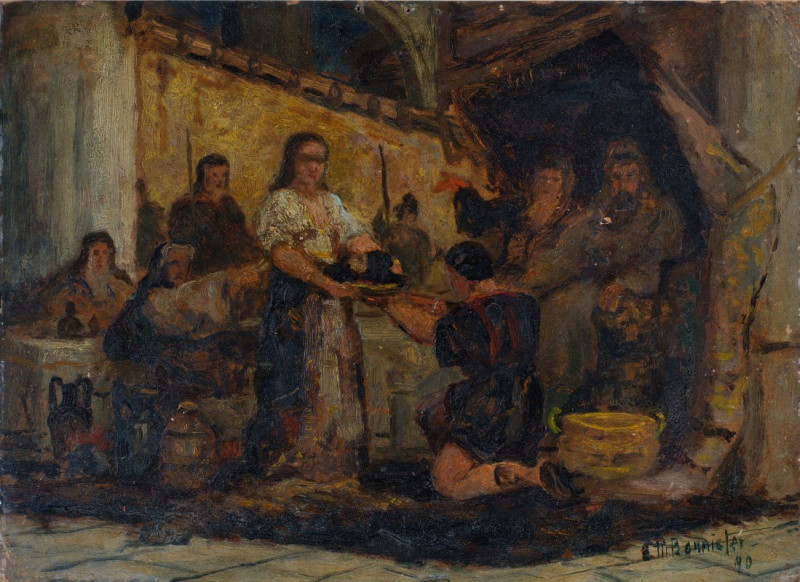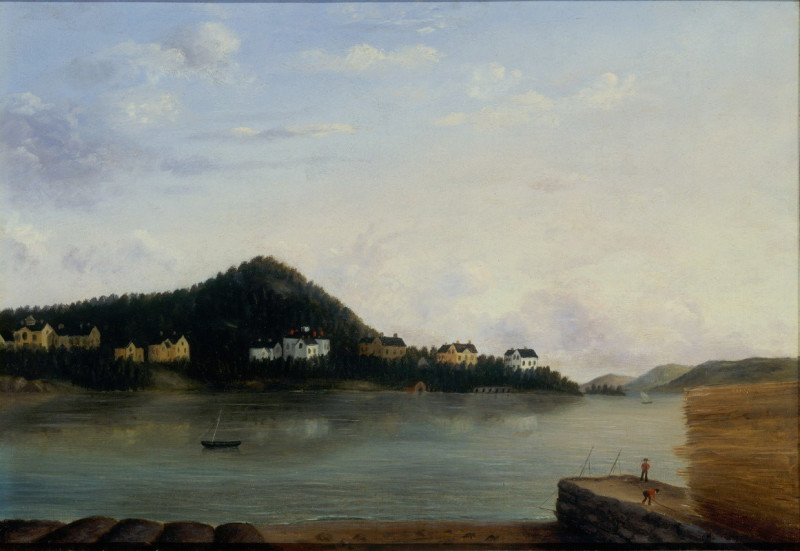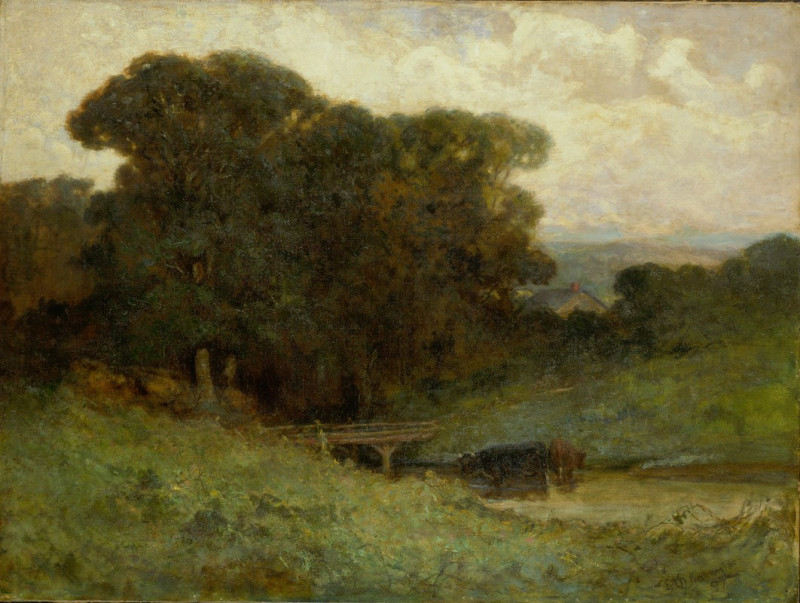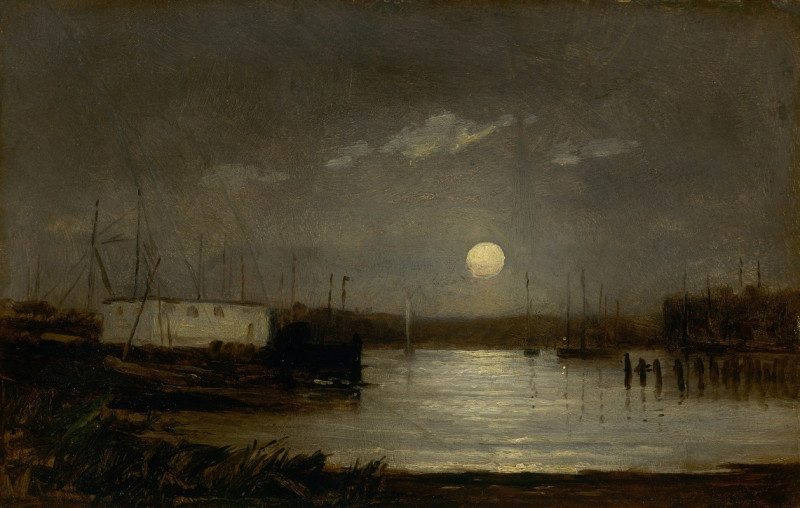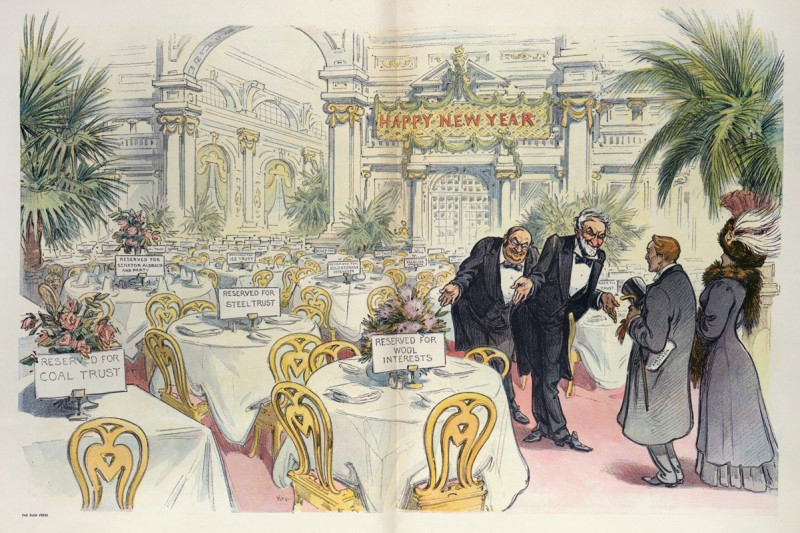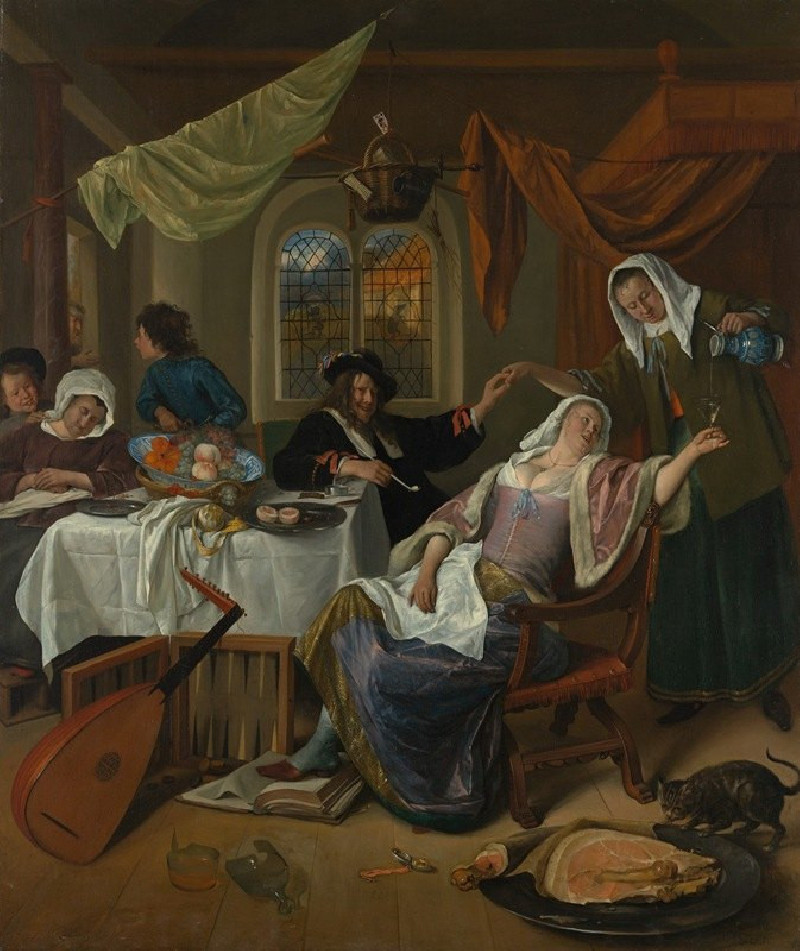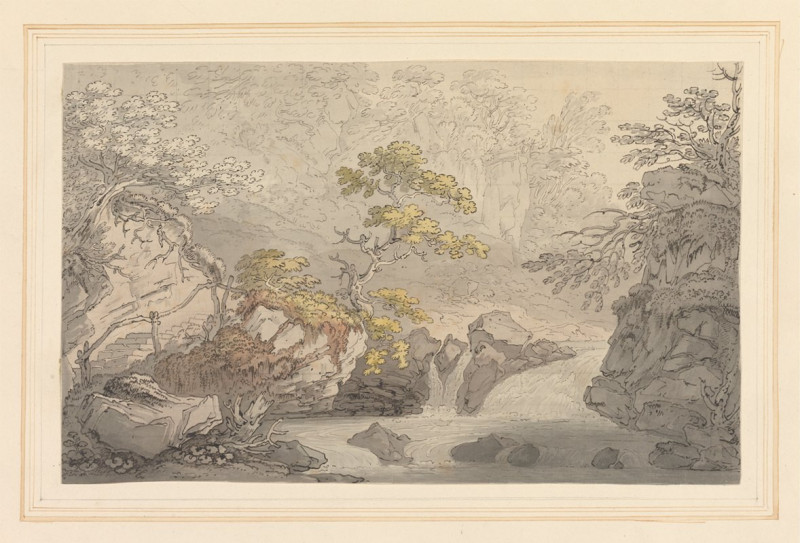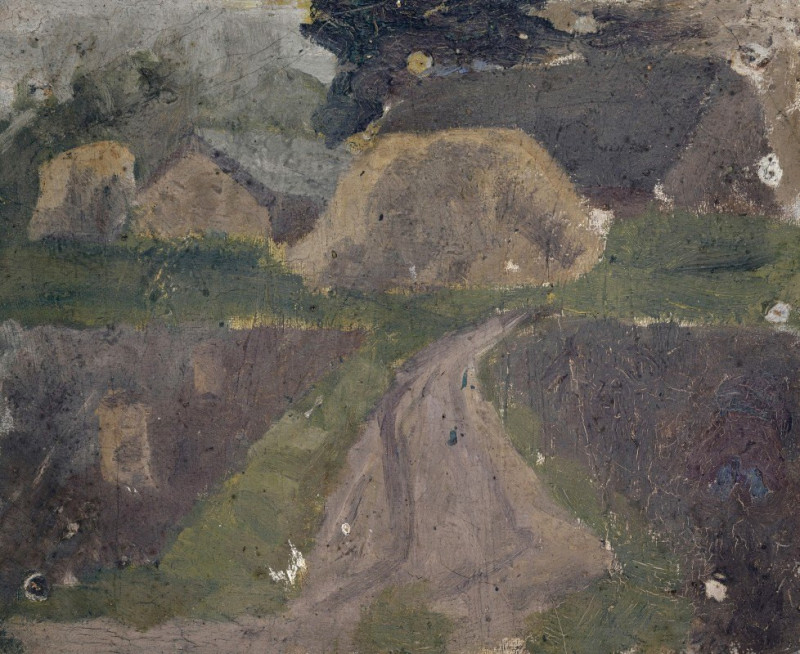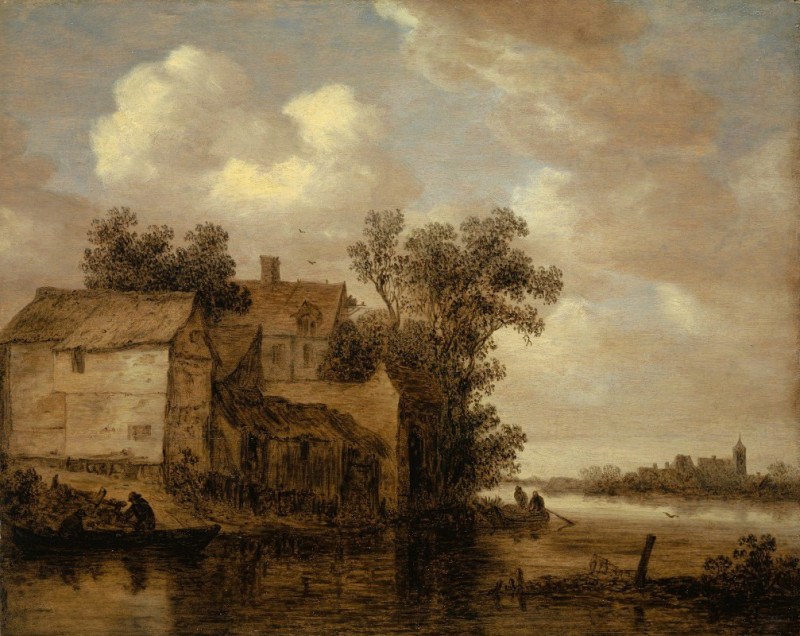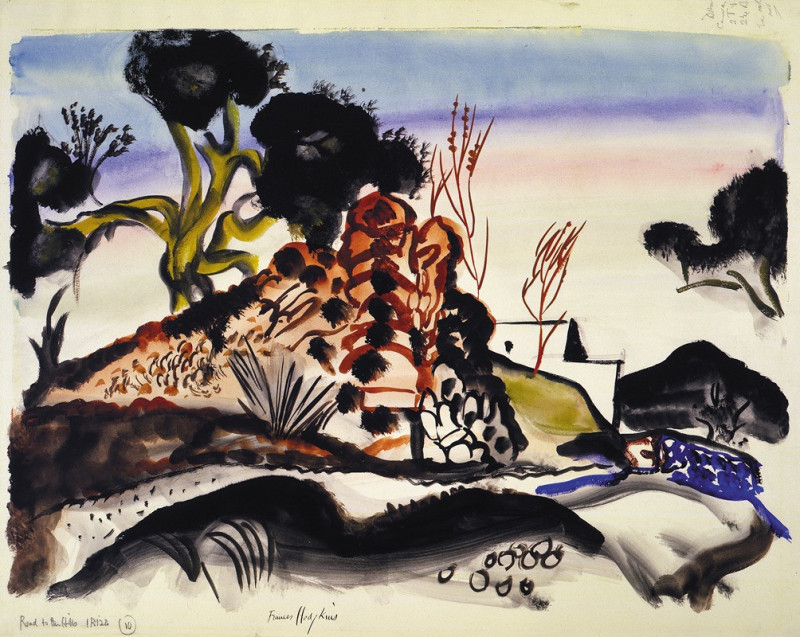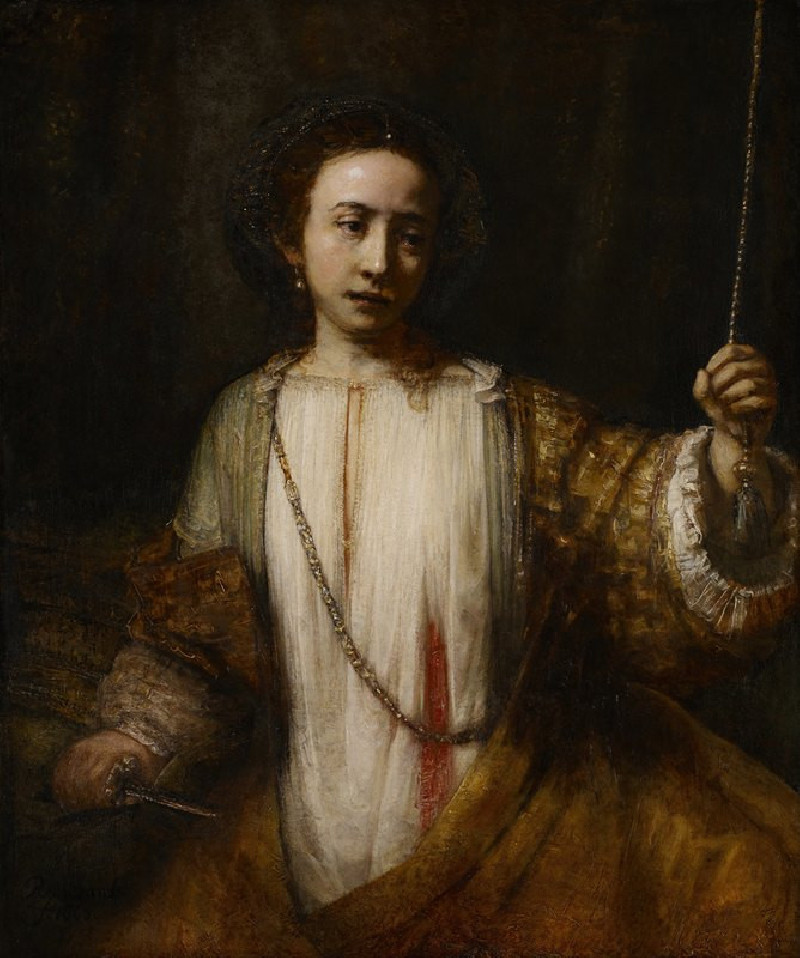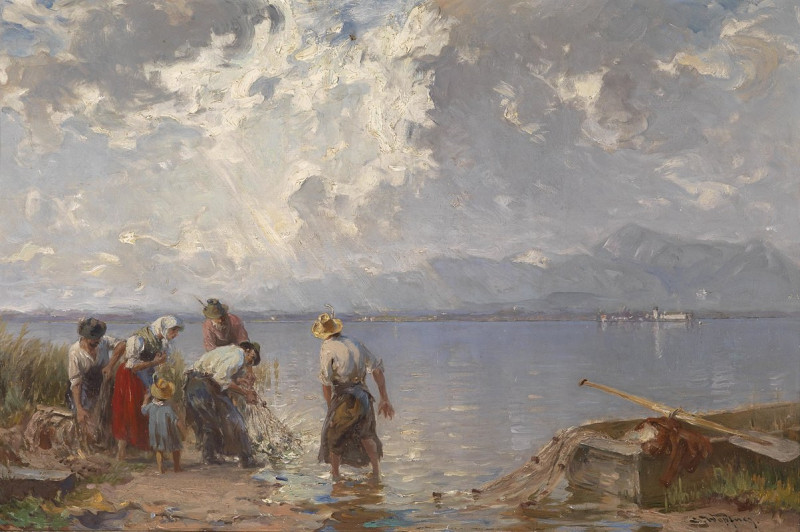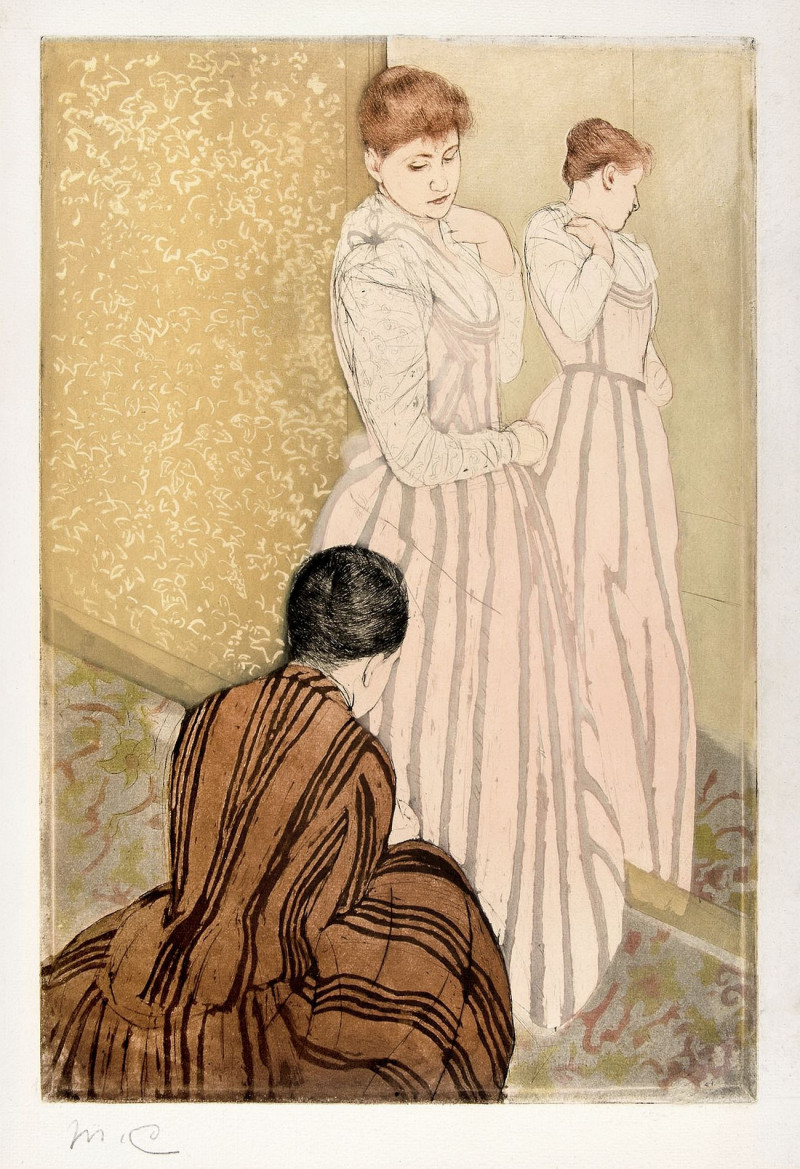Train (ca. 1875-1880)
Technique: Giclée quality print
Recommended by our customers
More about this artwork
"Train" by Edward Mitchell Bannister is an evocative piece that captures a timeless, serene landscape interlaced with the subtle yet profound presence of industrial progress. Painted between 1875 and 1880, this oil on canvas showcases Bannister's distinctive approach to natural scenes infused with a subtle narrative.The painting reveals a tranquil rural setting where a gentle river mirrors the soft, expansive sky. Dominating the verdant landscape is a robust, leafy tree on the right, creating a lush frame for the scene depicted. In contrast to this natural beauty, a man-made bridge stretches across the river, upon which a train moves. This juxtaposition subtly alludes to the encroachment of industrialization into natural spaces.Bannister's use of muted, harmonious colors and loose brushwork enhances the feeling of a fleeting moment captured in time. The clouds appear almost ethereal, their softness contrasting with the detailed texture of the foliage and the structural formality of the bridge."Train" invites viewers to reflect on the balance between the natural world and human innovation.
Delivery
Returns
Edward Mitchell Bannister (November 2, 1828 – January 9, 1901) was an oil painter of the American Barbizon school. Born in Canada, he spent his adult life in New England in the United States. There, along with his wife Christiana Carteaux Bannister, he was a prominent member of African-American cultural and political communities, such as the Boston abolition movement. Bannister received national recognition after he won a first prize in painting at the 1876 Philadelphia Centennial Exhibition. He was also a founding member of the Providence Art Club and the Rhode Island School of Design.

